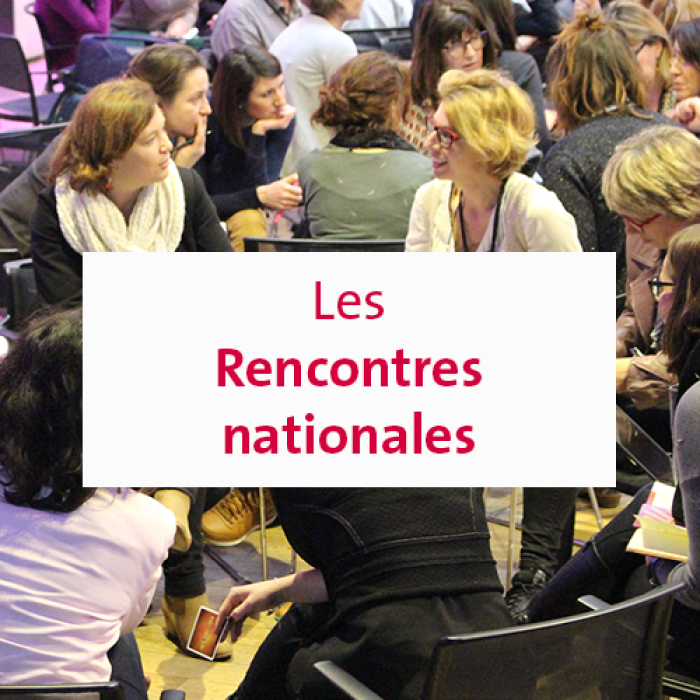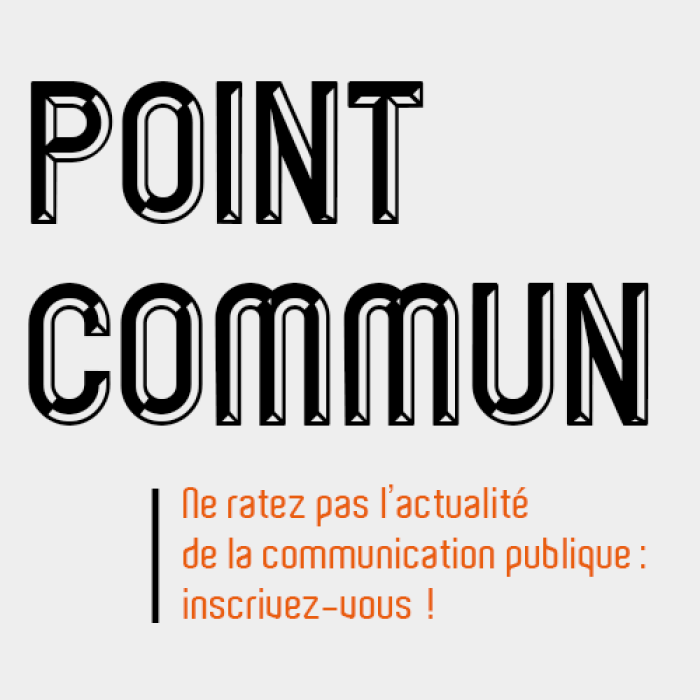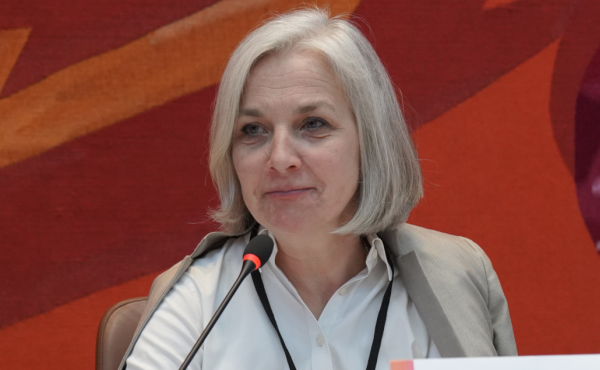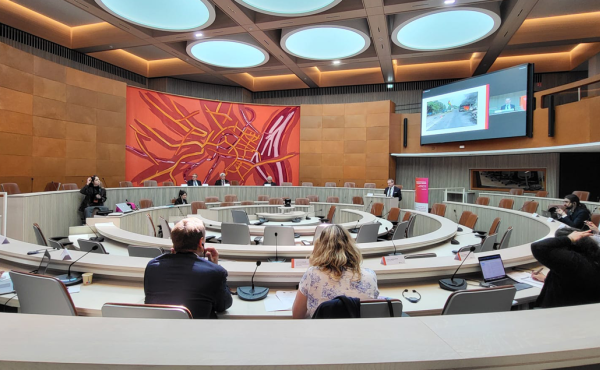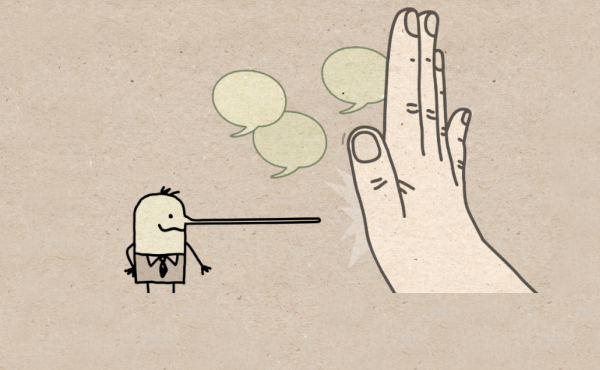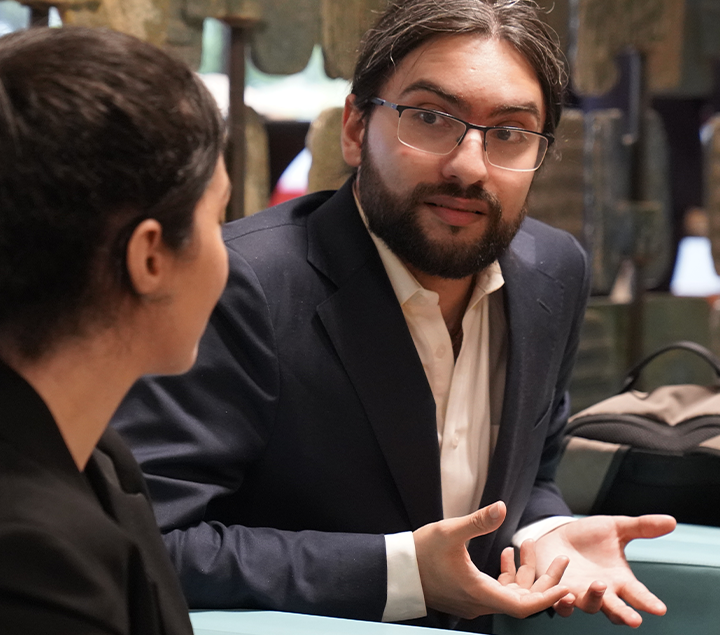
A common language against disinformation
For Saman Nazari, the “fairy tale” of social media as a free and useful agora is behind us. With his organization Alliance4Europe, he takes concrete action to make these spaces safer by offering a common language and approach, allowing us to understand and manage the flow of disinformation.
Saman Nazari is an open-source intelligence (OSINT) researcher, specializing in disinformation and foreign interference from China. He also establishes methodologies for this purpose. He is also coordinating different projects while trying to build a community of researchers, academics, analysts, journalists, and fact-checkers called the Counter Disinformation Network. Commonality met him during the second international seminar organized jointly by Cap’Com and the Club of Venice, with the support of the City and Eurometropolis of Strasbourg, on May 23 and 24, 2024.
Commonality: First of all, could you introduce us to your organization and its scope of action?
Saman Nazari: Alliance4Europe is an NGO that builds communities, conducts research and does advocacy. We also do activities that aim to strengthen society against disinformation and other threats. We try to create unity in society and promote European values. We do everything ranging from organizing football matches between refugee children and locals, to media literacy and journalism trainings. We incubated the DISARM Foundation, which has a framework that allows us to have a common language for discussing disinformation behaviours. We are now coordinating a European effort to monitor threats towards the European elections, which aims to support the work of the FIMI ISAC. We are a signature of the Code of Practice on Disinformation, an EU initiative that enables us to speak with social media platforms and inform them about disinformation threats.
Commonality: During your speech at this international seminar in Strasbourg you wanted to send a message. What is it?
Saman Nazari: The key message I'm trying to convey is that we need to create more of a common language to discuss and analyse disinformation to have broader exchanges and collaborations.
We need to create collaborations between organisations doing investigations and research with actors who are doing communication. To do so, we need to create a wide community of actors who can collaborate.
Commonality: In your opinion, when did the social media “fairy tale” turn into a nightmare? What was the tipping point?
Saman Nazari: It is a good question, a very hard question. I joined the political side of the internet very early, I think I was 16 when I joined the Arab Spring. During the Arab Spring, there was a period of hope. We thought we could do something using the internet to support the creation of democracies in the Middle East. To help people defeat authoritarianism and help journalists get information to the public. I think the tipping point was around the first Russian invasion of Ukraine and the annexation of Crimea. We started to see a massive amount of disinformation starting to potentially have an effect. I think that was the moment I started considering the internet to be a platform which wasn't just an open place for us to do good things, but also a tool that could be used to manipulate people.
Commonality: To what extent are new technologies responsible for disinformation?
Saman Nazari: While technology is enabling disinformation, I don't think it is the technology itself that is the issue. It's more that the providers of this technology are not taking the measures they should and the choices of actors using the technology. The technology in itself is very much like a knife. You can do amazing things with it or you can kill people.
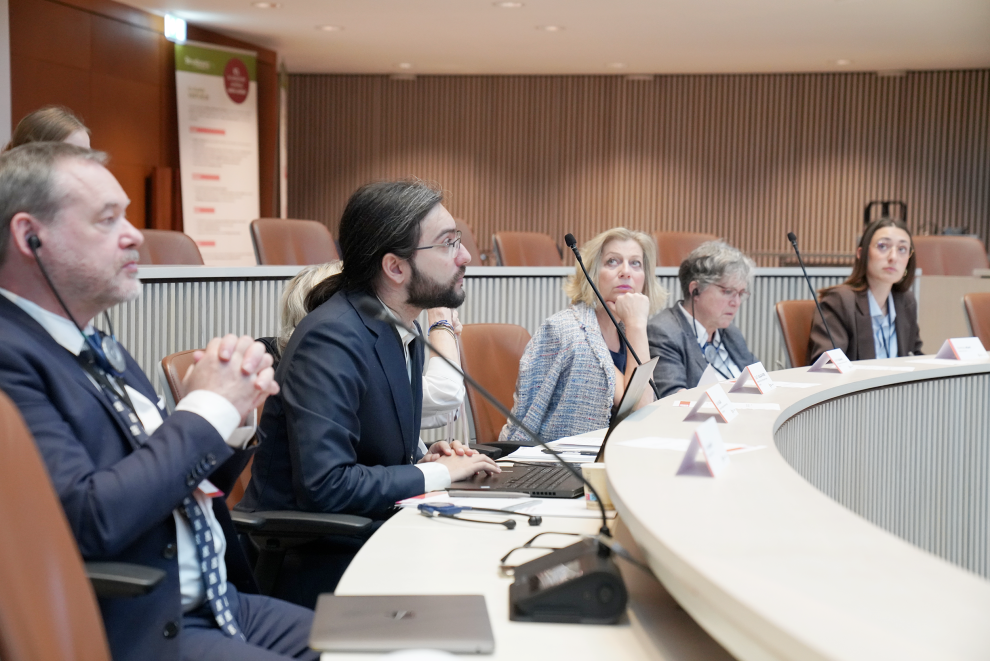
Disinformation has effects on the offline world, leading to people taking physical actions.
Commonality: On a scale of 1 to 10, to what extent do you consider disinformation to be a major problem?
Saman Nazari: Disinformation at large is a major problem, and I would say that it is on an 8. Disinformation is having real-life effects. I would even go as far as 8 because it has become a tool used by different actors to cause real harm. It's having physical effects where people are going away from their screens to the physical world to take actions based on the disinformation they have been exposed to. One example is the QAnon movement, which led to people being killed. Riots happening in different contexts are also seemingly being spurred on by disinformation. With that said, it is not always easy to draw the causality between physical actions and disinformation.
Commonality: Do you think we can get rid of disinformation?
Saman Nazari: No, I don't think we can get rid of disinformation. I think we need to learn to deal with it. We need to learn how to understand it and how to not be affected by it. There will always be actors who want to influence us using malicious means. I don't really like using the word “disinformation”. I prefer “influence operations”. Because it's not always false information, it's often just manipulative behaviours. My focus as a researcher is primarily on manipulative behaviours rather than false information.

